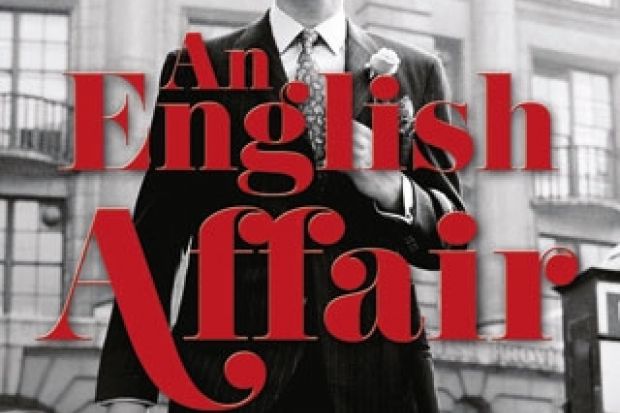Sir David Bell, vice-chancellor, University of Reading, is reading Richard Davenport-Hines’ An English Affair: Sex, Class and Power in the Age of Profumo (HarperPress, 2013). “If sexual intercourse began in 1963, then this book details the first act. It centres on John Profumo, minister of war, forced to resign for lying to the House of Commons after sleeping with ‘society girl’ Christine Keeler. Via a cast including spies, aristocrats, shady landlords, media barons and the unfortunate osteopath Stephen Ward, the writer evokes an era of political, cultural and sexual change. The result? Much less deference, but also a ‘soapy scum that flowed after the sluices of self-righteous scurrility were opened’.”

Matthew Feldman, reader in contemporary history, Teesside University, is reading David M. Crowe’s War Crimes, Genocide and Justice: A Global History (Palgrave Macmillan, 2014). “A stomach-churning account of humanity’s insatiable blood-lust. Shockingly diverse mass murders are calmly narrated, supported by 100 pages of endnotes. ‘Extermination, pure and simple’ is tempered by treating half-serious attempts to enshrine (Western) justice in the century before 1945. The technical chapters on subsequent international prevention that follow fail to dispel the impression that we remain focused on the scourge, not the cure.”

Michaela O’Brien, senior lecturer in public relations, University of Westminster, is reading Kristin Demetrious’ Public Relations, Activism, and Social Change: Speaking Up (Routledge, 2013). “A refreshing new perspective on public relations challenges the view that corporate PR in a pluralist society is consistent with democratic principles. Through three case studies of grassroots activist campaigns triggered by risk-producing industries, Demetrious’ critical, interdisciplinary study proposes a new model of ‘public communication’ that considers the impact of communication not just on the marketplace but on society.”

Vanessa Pupavac, lecturer in international relations, University of Nottingham, is reading John Williams’ Stoner (Vintage, 2012). “Stoner is about the life and vocation of an assistant professor of English, held in ‘no particular esteem’, who simply loves literature. Williams’ novel is an inspiration for anyone who wants to ‘keep the faith’ with studying and teaching as a vocation – ‘as if those studies were life itself and not specific means to specific ends’.”

R. C. Richardson, emeritus professor of history, University of Winchester, has been reading John Marlowe’s The Puritan Tradition in English Life (Cresset Press, 1956). “A 60-year-old book on Puritanism is inevitably a historiographical period piece. Today this volume offers more insights into the high points and neuroses of the second flowering of Puritanism in the Victorian period with its expanding middle class, and into its multi-faceted, long-term place in ‘Englishness’, than into the upheavals and cross-currents of the 17th century.”
Register to continue
Why register?
- Registration is free and only takes a moment
- Once registered, you can read 3 articles a month
- Sign up for our newsletter
Subscribe
Or subscribe for unlimited access to:
- Unlimited access to news, views, insights & reviews
- Digital editions
- Digital access to THE’s university and college rankings analysis
Already registered or a current subscriber? Login

